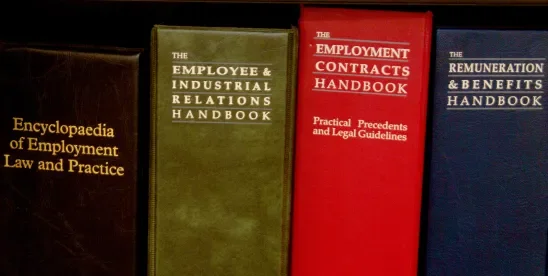With Thanksgiving right around the corner, now is the perfect time to reflect on things for which we have to be thankful. In the ever-evolving world of labor and employment law, there have been several significant developments over the past year that employers can appreciate.
Here are five key updates for which we are thankful:
1. Noncompetes Remain Viable
Employers can still enforce noncompete agreements without significant changes – at least for now. Although the FTC attempted to ban all noncompetes, citing them as an unfair method of competition, the United States District Court for the Northern District of Texas struck down this ban in August 2024. The court ruled that the FTC lacked authority to issue such a rule. While the FTC has appealed the decision, the court’s order allows employers to continue using noncompetes. However, employers should remain vigilant about state-specific restrictions when drafting these agreements.
2. Exempt Employee Salary Thresholds On Hold
Employers can hold off on the anticipated January 1, 2025 salary increases for some exempt employees. The DOL’s rule would have raised the minimum weekly salary for executive, administrative, and professional (EAP) exemptions under the Fair Labor Standards Act (FLSA) from $844 per week to $1,128 per week, and the highly compensated employee (HCE) threshold from $132,964 to $151,164. The rule was expected to make an additional four million employees eligible for overtime pay. However, the United States District Court for the Eastern District of Texas vacated this rule, finding that it exceeded the DOL’s authority. Employers will not be required to implement salary increases or make other substantive changes to comply with the DOL’s purported January 1, 2025 increase.
3. Simplifying the Tip Credit Rules
Employers with tipped employees can benefit from a significant change to tip credit regulations. On August 23, 2024, the Fifth Circuit Court of Appeals issued an injunction vacating the DOL’s 80/20 tip credit rule. You may recall that this rule had previously limited employers from taking a tip credit for employees who spent more than 20% of their time on non-tip tasks or worked more than 30 continuous minutes on such tasks. The court found the rule arbitrary and capricious. Now, application of the tip credit focuses on whether the employee customarily and regularly receives more than $30 a month in tips, under the FLSA definition of a tipped employee. Employers do not have to worry about task-specific time tracking.
4. Potential Employer-Friendly Changes on the Horizon Under the New Administration
The recent presidential election could lead to more employer-friendly laws and policies, particularly in the labor space. First, it is expected that the union election process will see a dramatic shift, placing the burden back on the union organizers to petition for union recognition. In 2023, the NLRB issued the Cemex Construction Materials Pacific, LLC decision which placed the burden on employers to challenge a union request (rather than on the union to petition for recognition). The second prediction focuses on the potential reversal of the current NLRB standard for lawfulness of employer workplace rules. The NLRB issued a decision stating that an employer’s workplace rule is considered “presumptively unlawful if it has a reasonable tendency to chill employees from exercising their rights to join together to affect working conditions.” Lastly, the current NLRB interpretation on prohibitions of non-disparagement and confidentiality provisions in severance agreements might be overturned. These potential changes, among others, could offer relief to employers navigating labor-related challenges.
5. The End of Chevron Deference for Agencies
In June 2024, the U.S. Supreme Court issued Loper Bright Enterprises v. Raimondo, a landmark decision overturning the long-standing Chevron deference, which had required courts to defer to agencies’ reasonable interpretations of ambiguous statutes. Under the new standard, courts must exercise independent judgment and decide all relevant questions of law to determine whether an agency has acted within its authority. The Supreme Court reasoned that the agencies do not have extensive expertise to resolve statutory ambiguities. This decision has already impacted labor and employment law, influencing the courts’ rulings in items one through three on our thankful list (DOL salary exemptions, noncompete agreements and tip credits). This shift ensures greater judicial oversight and limits the scope of administrative agencies’ power, particularly in matters affecting employers within the labor and employment realm.
Employers have much to reflect on and be thankful for as these developments shape the labor and employment landscape.





 />i
/>i

